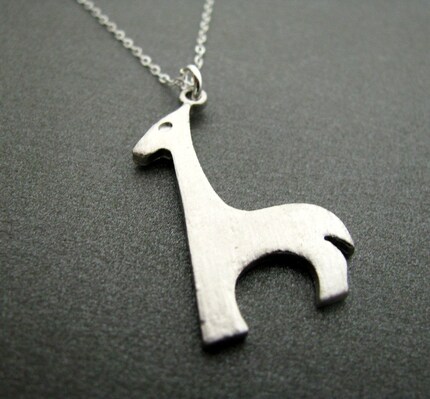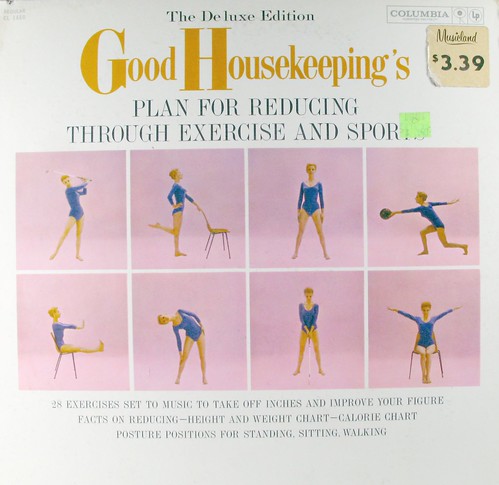
via Jezebel
The Wait: a liminal time period where what comes next is unknown and scary and exciting. A place where literature, sociology, gender, marriage, weight loss and motherhood intersect. Also, the occasional giraffe.

 about Sanders' memories of his drunken father, but he adroitly avoids sentiment and cliche. A man writing about his drunk father is like the masculine version of Mommy Dearest but at no time does Sanders evoke the "poor me" vibe of say, a Pat Conroy novel (whom I love but you know, I know what my weaknesses are). Instead, Sanders brings you under the emotional affect of the ten year old boy he was, and it's easy to empathize and sympathize with the child he was, avoiding the prat fall of a grown-up whining about how shitty his parents were. In fact, he only refers to the man he has become selectively, and just briefly, so the glimpses are powerful. In addition, he creates scenes that could be found in the best fiction: descriptive, pungent, visual words that pummel you. Emotional wording is limited, but the reader has no trouble realizing the emotional impact of witnessing your father drink himself to death. The power, as it so often is, resides in the details. In the end, his father is not demonized, but instead a study in dichotomy ; sometimes a monster, but often a weak, frail, and deeply sick human being. He also provides portraits of others: his mother, his neighbors, the adult children of other alcoholics. These portraits provide a resonance and a thoughtfulness that is lacking in most memoir nonfiction by going beyond personal experiences. The most interesting structure of the piece is composed of how the narrative unfolds. Sanders tells us in the first paragraph of the essay that his father died, "body cooling and forsaken on the linoleum of my brother's trailer". What in fiction would be the denouement, he gives to the reader within 50 words of starting the essay. The spectre of his father thus hangs over the reader, a menacing version of the ghostly grandfather from The Family Circus. Additionally, the real drama is in the integral suspense of of the progression of time, and his father's surprising but doomed 15 year dry spell. Like Hitchcock says, suspense is more interesting than surprise. His father's sober period is like a bomb on a bus that only you know about, and which explodes just like you knew it would. The piece reminds me of a eulogy, one that you might want to deliver, but never would. Funerals are for the survivors, after all, and so often is memoir.
about Sanders' memories of his drunken father, but he adroitly avoids sentiment and cliche. A man writing about his drunk father is like the masculine version of Mommy Dearest but at no time does Sanders evoke the "poor me" vibe of say, a Pat Conroy novel (whom I love but you know, I know what my weaknesses are). Instead, Sanders brings you under the emotional affect of the ten year old boy he was, and it's easy to empathize and sympathize with the child he was, avoiding the prat fall of a grown-up whining about how shitty his parents were. In fact, he only refers to the man he has become selectively, and just briefly, so the glimpses are powerful. In addition, he creates scenes that could be found in the best fiction: descriptive, pungent, visual words that pummel you. Emotional wording is limited, but the reader has no trouble realizing the emotional impact of witnessing your father drink himself to death. The power, as it so often is, resides in the details. In the end, his father is not demonized, but instead a study in dichotomy ; sometimes a monster, but often a weak, frail, and deeply sick human being. He also provides portraits of others: his mother, his neighbors, the adult children of other alcoholics. These portraits provide a resonance and a thoughtfulness that is lacking in most memoir nonfiction by going beyond personal experiences. The most interesting structure of the piece is composed of how the narrative unfolds. Sanders tells us in the first paragraph of the essay that his father died, "body cooling and forsaken on the linoleum of my brother's trailer". What in fiction would be the denouement, he gives to the reader within 50 words of starting the essay. The spectre of his father thus hangs over the reader, a menacing version of the ghostly grandfather from The Family Circus. Additionally, the real drama is in the integral suspense of of the progression of time, and his father's surprising but doomed 15 year dry spell. Like Hitchcock says, suspense is more interesting than surprise. His father's sober period is like a bomb on a bus that only you know about, and which explodes just like you knew it would. The piece reminds me of a eulogy, one that you might want to deliver, but never would. Funerals are for the survivors, after all, and so often is memoir.
 Pounds lost: not sure
Pounds lost: not sureLast year, when President Kennedy was assassinated, who among us did not experience the most profound disorientation? Despair? Which way? What now? What do I say to my kids? What do I tell myself? It was a time of people sitting together, bound together by a common feeling of hopelessness. But think of that! Your BOND with your fellow being was your Despair. It was a public experience. It was awful, but we were in it together. How much worse is it then for the lone man, the lone woman, stricken by a private calamity?
‘No one knows I’m sick.’
‘No one knows I’ve lost my last real friend.’
‘No one knows I’ve done something wrong.’
Imagine the isolation. Now you see the world as through a window. On one side of the glass: happy, untroubled people, and on the other side: you.
I want to tell you a story. A cargo ship sank one night. It caught fire and went down. And only this one sailor survived. He found a lifeboat, rigged a sail…and being of a nautical discipline…turned his eyes to the Heavens and read the stars. He set a course for his home, and exhausted, fell asleep. Clouds rolled in. And for the next twenty nights, he could no longer see the stars. He thought he was on course, but there was no way to be certain. And as the days rolled on, and the sailor wasted away, he began to have doubts. Had he set his course right? Was he still going on towards his home? Or was he horribly lost… and doomed to a terrible death? No way to know. The message of the constellations - had he imagined it because of his desperate circumstance? Or had he seen truth once… and now had to hold on to it without further reassurance? There are those of you in church today who know exactly the crisis of faith I describe. And I want to say to you:DOUBT can be a bond as powerful and sustaining as certainty. When you are lost, you are not alone.
 twice and in altogether separate incidents I have been disappointed by two people I love.
twice and in altogether separate incidents I have been disappointed by two people I love. Pounds lost: 0
Pounds lost: 0The conventional wisdom that exercise is essential for shedding pounds is actually fairly new. As recently as the 1960s, doctors routinely advised against rigorous exercise, particularly for older adults who could injure themselves. Today doctors encourage even their oldest patients to exercise, which is sound advice for many reasons: People who regularly exercise are at significantly lower risk for all manner of diseases - those of the heart in particular. They less often develop cancer, diabetes and many other illnesses. But the past few years of obesity research show that the role of exercise in weight loss has been wildly overstated...The basic problem is that while it's true that exercise burns calories and that you must burn calories to lose weight, exercise has another effect: it can stimulate hunger. That causes us to eat more, which in turn can negate the weight-loss benefits we just accrued. Exercise, in other words, isn't necessarily helping us lose weight. It may even be making it harder.
 a horrible person, and despite his late in life transformation, he was a really lonely person who wasted a lot of time being angry and hateful. It was a pretty good reminder that life goes quickly and if you aren't careful you can alienate the people you love, or be left by them until you are all alone. And then you have to befriend the Hmong neighbor kids to save them from a fate of poverty and violence. That doesn't seem like something I would be into.
a horrible person, and despite his late in life transformation, he was a really lonely person who wasted a lot of time being angry and hateful. It was a pretty good reminder that life goes quickly and if you aren't careful you can alienate the people you love, or be left by them until you are all alone. And then you have to befriend the Hmong neighbor kids to save them from a fate of poverty and violence. That doesn't seem like something I would be into.